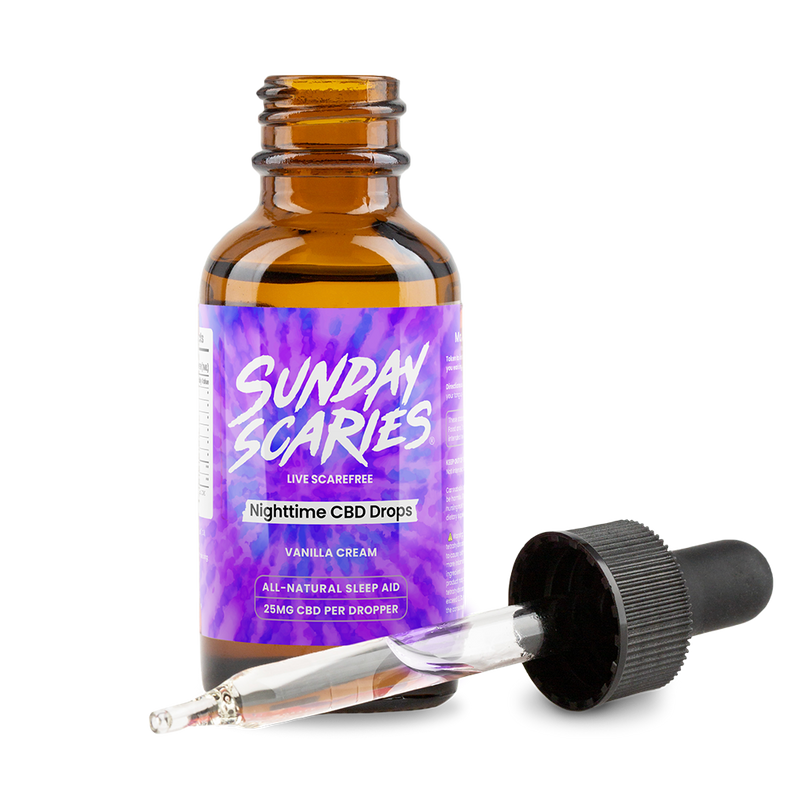
How Long Does CBD Oil Take to Work for Sleep?: Your Guide to Restful Nights

If you’re turning to CBD oil for better sleep, you might be wondering, “how long does CBD oil take to work for sleep?” Typically, CBD oil begins to show effects for sleep within 20 to 30 minutes when taken sublingually, but full benefits may take longer to become apparent.
Factors such as dosage, individual body chemistry, and consumption method can influence this timeline.
This article takes a closer look at what to expect when using CBD oil to improve your sleep, how to optimize its effects, and the science behind how it works.
Key Takeaways
- CBD oil interacts with the endocannabinoid system, reportedly aiding sleep, but effectiveness and time to work vary widely based on factors like dosage, consumption method, and individual biology.
- Short-term effects of CBD on sleep can include quicker onset of sleep and improved sleep quality, with some individuals noticing benefits within the first week, though individual reactions may differ.
- Long-term CBD oil use may improve sleep quality and regulation of sleep-wake cycle, but optimal dosages and methods are still being researched, and monitoring for potential interactions with other medications is crucial.
Understanding CBD Oil's Timeline for Sleep
CBD sleep oil typically takes about 20-30 minutes to start working for sleep, although this can vary depending on several factors. When taken sublingually (under the tongue), the CBD is absorbed more quickly into the bloodstream, allowing for faster onset of effects. For some individuals, it may take up to an hour to feel the full effects. Factors such as dosage, individual metabolism, and the presence of food in the stomach can influence the onset time.
Once absorbed, CBD interacts with the endocannabinoid system, which plays a role in regulating various bodily functions, including sleep. Many users report feeling calmer and more relaxed after taking CBD, which can help them fall asleep more easily.
However, the effectiveness of CBD for sleep can also depend on the underlying cause of sleep issues. For chronic insomnia or severe sleep disorders, it might take a few days to a week of consistent use to notice significant improvements.
As with any supplement, it's important to start with a lower dose and gradually increase it to find the optimal amount that works for you.
The time it takes for CBD oil to start working for sleep isn’t identical for everyone. Patience is key as the effects take time to manifest. The response time hinges on a variety of factors. Given the uniqueness of each individual, the onset of CBD oil effects on sleep varies significantly. The quantity, type of CBD, and mode of ingestion are all decisive factors in this aspect.
Factors Affecting Absorption Rate
Each individual’s distinctive body chemistry can greatly affect the interaction of CBD oil with their system, influencing both the rate of absorption and its effectiveness in fostering sleep. The size of the dose, method of administration, and consumption timing are critical elements shaping the impact of CBD oil on sleep.
Therefore, adjusting the quantity, frequency, and way of consuming CBD oil is recommended to enhance its influence on your sleep.
Bear in mind, we all differ, and what suits one individual might not suit another. The trick lies in being attuned to your body and making necessary adjustments.
Dosage and Its Role in Timing
When it comes to CBD dosage for sleep, a personalized approach is best. It’s advisable to start with a general baseline dosage of 25 milligrams of CBD taken sublingually 30 to 60 minutes before bedtime.
This is because lower doses of CBD may lead to stimulating effects, while higher doses are more likely to result in sedative effects, influencing the time it takes to fall asleep.
Keep an eye on your body’s reaction and tweak the dosage accordingly. Keep in mind, finding the best CBD dosage for sleep is a matter of trial and error and demands patience.
For more information on dosing, check out this article "How Much CBD Oil to Take for Sleep".
Consumption Methods Compared
The method of administering CBD oil significantly determines how quickly it is absorbed into your system. For instance, sublingual administration of CBD oil results in faster absorption compared to ingestion methods such as CBD edibles or CBD topicals.
Vaping CBD oil is another method that leads to more rapid absorption, helping you experience its effects quicker. Although, this method of ingestion can also lead to sleep disruption due to other negative factors of vaping that are detrimental to your overall health.
Select the mode that suits your lifestyle and preferences best, but remember that some methods might yield faster results than others.
The Initial Effects of CBD on Sleep
Once you’ve embarked on your CBD regimen, you might be curious about when you’ll begin to see the benefits.
Initially, you might find yourself drifting off to sleep quicker, staying asleep longer, and waking up feeling more rejuvenated due to CBD oil.
During the first week of use, you might notice an enhancement in sleep quality and ease in nodding off. However, don’t feel disheartened if you don’t see instant health benefits. The influence of CBD oil on sleep usually becomes noticeable after at least a week of consistent use.
CBD consumers usually report an improvement in sleep quality in the first month of using CBD oil for sleep. CBD achieves this by activating serotonin receptors, interacting with the endocannabinoid system to regulate sleep, anxiety, and inflammation, and increasing levels of anandamide to promote sleep.
If you're interested in learning about all of the positive effects CBD helps with, check out this article: "CBD Oil Benefits for Sleep".
What to Expect in the First Week
In the first week of using CBD oil for sleep, you can expect:
- Changes in your sleep patterns
- Reduction in the time it takes to fall asleep
- Improvements in the quality of your sleep
- Some individuals may even notice an increase in sleep duration within the initial week.
However, remember that everyone’s experience with CBD is unique, and these changes might not be the same for everyone.
Signs That CBD is Working
So, how can you tell if CBD oil is starting to work for your sleep?: A reduction in the time it takes to fall asleep is a sign that CBD oil is beginning to positively affect your sleep.
Additionally, an increase in the duration of undisturbed sleep indicates that CBD oil is beginning to work for managing your sleep issues.
As you continue your CBD journey, pay close attention to these signs to monitor your progress.
How Long-term Use Affects Sleep Quality
Long-term use of CBD oil can lead to increased sleep quality. Over time, the cumulative effects of regular CBD oil use can enhance your sleep.
Higher dosages may produce a sedative effect, and lower dosages may lead to stimulation, depending on your body’s response. However, the benefits of CBD oil for sleep aren’t just about dosage and frequency. Regular use is important for maintaining and balancing the endocannabinoid system, which can maximize the benefits of its effects over time. The effects compound, in what we call the "snowball effect"
Building Up to Better Sleep
Consistent usage of CBD oil is key to achieving improvements in sleep quality. It’s generally recommended to maintain a consistent dosage for one to two weeks before expecting noticeable changes in your sleep patterns.
This isn’t a quick fix, but a gradual process of building up to better sleep. But don’t be surprised if you notice:
- Increased sleep duration
- Improvements in the ability to fall asleep within the initial week
- Enhanced energy levels
- Better focus during the day
These can be signs that CBD oils are improving your poor sleep quality.
A controlled trial in the Journal of Clinical Sleep Medicine found that after two weeks of consistent nightly use, 150 mg of CBD supplementation led to better objective sleep efficiency compared to a placebo, making it a potential alternative to traditional sleeping pills.
When to Adjust Your CBD Dosage for Sleep
As your body acclimatizes to CBD oil with time, you might have to modify your dosage. It’s recommended to start with a smaller dose, usually between 10-50 milligrams daily, depending on your body weight and severity of condition.
The strength and effect of the CBD dosage can vary based on the type of CBD used, such as broad-spectrum, full-spectrum, or CBD isolate, with some forms including additional advantageous cannabinoids and terpenes.
Remember, adjusting your CBD dosage may be necessary as your body adapts over time. For example, after two months of consistent use with diminished sleep benefits, a dose adjustment underpinned by research and professional guidance can be considered. Always listen to your body and adjust your dosage as necessary.
For a step-by-step guide, check out this article titled How to Use CBD Oil for Sleep.
Monitoring Your Sleep Quality
Observing your sleep quality is vital when modifying your CBD dosage. By keeping a record of your sleep patterns and quality in conjunction with your CBD dosage, you can ascertain the ideal dosage for enhancing sleep.
You might want to use apps that monitor sleep patterns, as they often allow you to log CBD dosages.
This can help you correlate your sleep quality with your CBD intake and make informed decisions about dosage adjustments.
Gradually Increase Your Dosage
If the initial CBD dosages do not promote the desired sleep improvements, consider gradually increasing the dosage. Start with a lower CBD dosage and monitor the effects on your sleep for a few weeks. If you don’t notice the desired improvements, increase the dosage in increments of 1-6 mg per 10 lbs of body weight until the desired effects are achieved.
Remember, patience and consistency are key when it comes to CBD and sleep, especially if you have trouble falling asleep or trouble sleeping.
Potential Interactions with Other Medications & Substances
While CBD oil can be a beneficial addition to your sleep routine, it’s essential to be aware of its potential interactions with other medications. CBD can interact with other medications, which makes it crucial to consult a healthcare professional before initiating or adjusting your CBD dosage for sleep.
Also, when CBD oil is combined with central nervous system depressants like alcohol, there may be an increase in sedating effects, which raises the risk of injury and potential liver damage.
Anecdotal Evidence of CBD Oils for Sleep
In analyzing CBD’s function in sleep disorders, it’s crucial to weigh anecdotal reports against clinical studies.
Check out this 5 Star review from a Big Spoon, CBD + CBN Sleep Oil, Sunday Scaries customer:
"Best I've Used
I have real trouble sleeping and have tried various CBD products that did not work. I was intrigued by Sunday Scaries' reviews (as well as their great commercials) and after a little more research, gave their sleep oil a try. In a few words, IT WORKS! I am on my second bottle, but will continue to purchase it. I sleep soundly for 8 hours. Thank you, Sunday Scaries for a wonderful product."
- Philip F. (Verified Buyer)
Maximizing the Benefits of CBD for Sleep
To take full advantage of CBD’s benefits for sleep, it’s imperative to blend it into your self-care regimen. CBD oil, being safe, nontoxic, and non-addictive, permits its regular integration into sleep routines. Including CBD into your self-care routine, which encompasses winding down time, can enhance the sleep advantages of CBD.
Besides integrating CBD into your routine, think about combining it with natural sleep aids. For example, GABA supplements, valerian root, and magnesium can be used alongside CBD to potentially boost sleep.
Keep in mind, attaining restful sleep is a comprehensive process involving multiple elements, and CBD is merely one instrument in your sleep-enhancement arsenal.
Creating a Conducive Sleep Environment
Fostering a suitable sleep environment is another key aspect that affects how long CBD oil takes to work for sleep.
Think about curbing exposure to blue light from screens before bedtime, as this can bolster your body’s natural melatonin production. Also, include soothing activities in your bedtime routine, such as sipping chamomile tea or utilizing lavender aromatherapy.
These activities, along with 5-HTP, L-Theanine, Lemon Balm and other supplements, can create a more conducive sleep environment when taking CBD oil. Remember, achieving a good night’s sleep isn’t just about what you consume, but also about the environment and habits you cultivate.
Pairing CBD with Natural Sleep Aids
Along with fostering a suitable sleep environment, consider coupling CBD, derived from the cannabis plant, with natural sleep aids. Nervine herbs like Valerian Root, in conjunction with Chamomile, have received approval from health organizations for sleep disturbances and can be safely merged with CBD.
The terpenes in CBD offer therapeutic benefits including sedative properties that can aid in sleep. By combining these natural sleep aids, you can create a holistic approach to improving your sleep quality.
Summary
In conclusion, CBD oil for sleep typically takes about 20-30 minutes to start working, although this can vary depending on several factors such as dosage, individual metabolism, and the presence of food in the stomach can influence the onset time.
CBD oil holds potential for those seeking a natural solution to their sleep issues. From understanding CBD’s timeline for sleep, adjusting dosages, to potential interactions with other medications, we’ve explored how CBD oil can contribute to a more restful night’s sleep.
We’ve also delved into the science behind CBD and sleep disorders, balancing anecdotal evidence with clinical studies.
Lastly, we’ve shared ways to maximize the benefits of CBD for sleep, including creating a conducive sleep environment and pairing it with natural sleep aids.
Frequently Asked Questions
How does CBD oil work for sleep?
CBD oil can aid sleep by interacting with the endocannabinoid system, which helps regulate the sleep-wake cycle.
How long does it take for CBD oil to work for sleep?
The time it takes for CBD oil to affect sleep varies depending on factors such as dosage and method of consumption, and can differ from person to person - but it usually takes 20-30 minutes. It's important to be patient when trying CBD oil for sleep.
How can I determine the optimal dosage of CBD oil for sleep?
Start with a baseline dosage of 25 milligrams of CBD taken sublingually before bedtime, then monitor your body's response and adjust as needed.
Can CBD oil interact with other medications?
It is crucial to consult a healthcare professional before initiating or adjusting your CBD dosage for sleep, as CBD can interact with other medications.
How can I maximize the benefits of CBD for sleep?
To maximize the benefits of CBD for sleep, incorporate it into your self-care routine, create a conducive sleep environment, and consider pairing it with natural sleep aid supplements like valerian root, chamomile and lemon balm. This can help enhance the effects of CBD and promote better sleep quality.
How long does it take for CBD gummies to work for sleep?
CBD gummies generally take about 30 minutes to 1 hour to start working for sleep, as they need to be digested and metabolized before the CBD is absorbed into the bloodstream. The exact time can vary depending on individual factors like metabolism and whether the gummies are taken on an empty stomach.
How long does it take for THC gummies to work for sleep?
Delta-9 THC gummies, like our THC gummies for sleep typically take about 30 minutes to 2 hours to start working for sleep, as they need to be digested and metabolized before the THC is absorbed into the bloodstream. The exact onset time of THC gummies can vary based on individual factors like metabolism and whether the gummies are taken with food.

 CBD Gummies
Stress Relief
CBD Gummies
Stress Relief
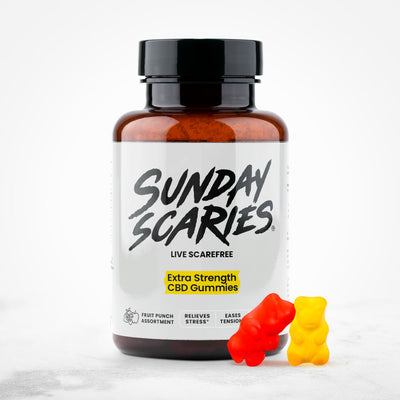 Extra Strength CBD Gummies
Stress Relief
Extra Strength CBD Gummies
Stress Relief
 Vegan CBD Gummies
Stress Relief
Vegan CBD Gummies
Stress Relief
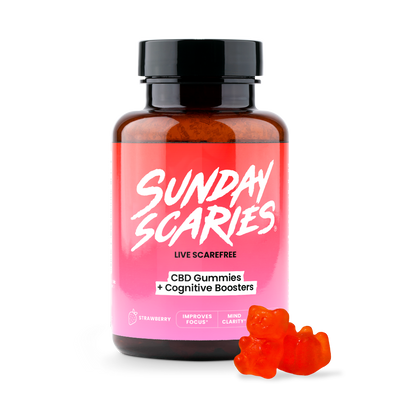 CBD Gummies for Focus
Focus Boost
CBD Gummies for Focus
Focus Boost
 CBD Candy
Mood Lift
CBD Candy
Mood Lift
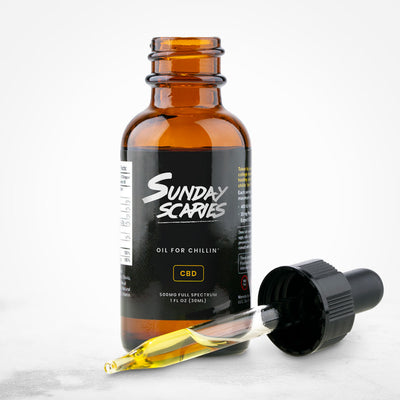 CBD Daytime Oil
Stress Relief
CBD Daytime Oil
Stress Relief
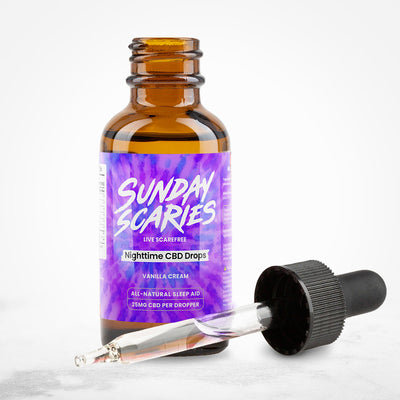 CBD Sleep Oil
Sleep Aid
CBD Sleep Oil
Sleep Aid
 CBD Dog Treats
Stress Relief
CBD Dog Treats
Stress Relief
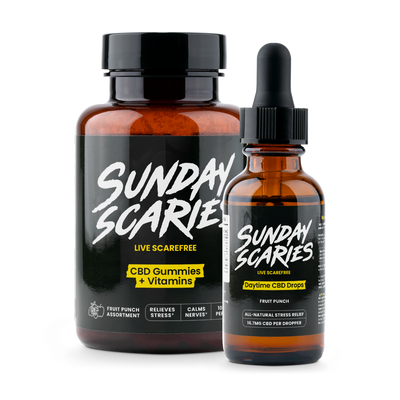 Side Piece Bundle
Stress Relief
Side Piece Bundle
Stress Relief
 Rando Bundle
Stress Relief
Rando Bundle
Stress Relief
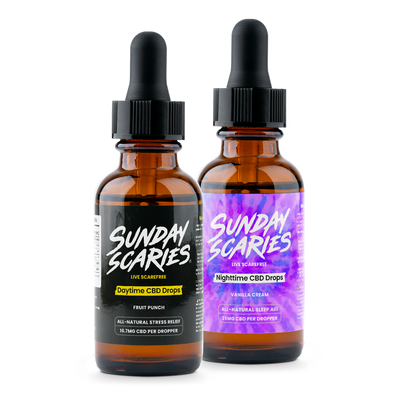 Sunrise & Sunset CBD Oil Bundle
Stress Relief
Sunrise & Sunset CBD Oil Bundle
Stress Relief
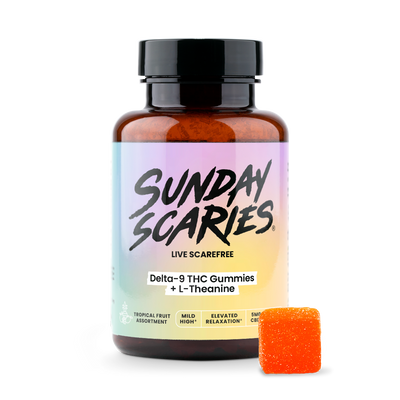 5mg Delta-9 Gummies
Euphoria
5mg Delta-9 Gummies
Euphoria
 10mg Delta-9 Gummies
Euphoria
10mg Delta-9 Gummies
Euphoria
 THC Gummies for Sleep
Sleep Aid
THC Gummies for Sleep
Sleep Aid
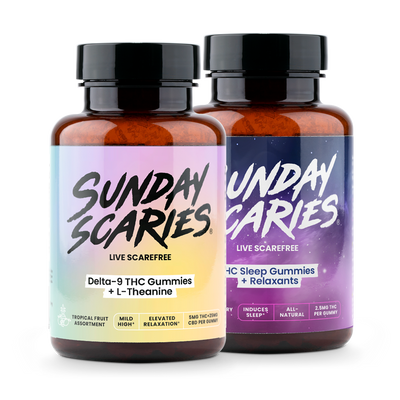 Day & Night THC Gummies Bundle
Stress Relief
Day & Night THC Gummies Bundle
Stress Relief
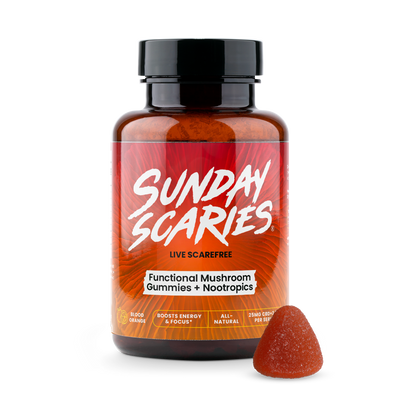 Mushroom Gummies
Focus Boost
Mushroom Gummies
Focus Boost
 Shilajit Gummies
Focus Boost
Shilajit Gummies
Focus Boost
 Sunday Scaries Hat
Sunday Scaries Hat
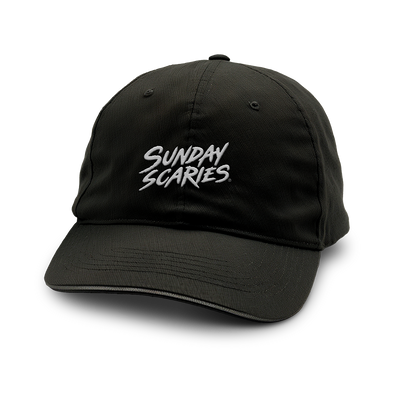 Sunday Scaries Dad Hat
Sunday Scaries Dad Hat
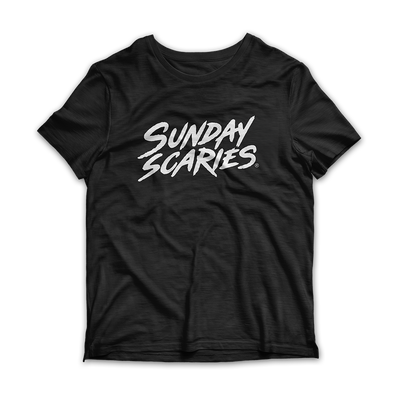 Sunday Scaries T-Shirt
Sunday Scaries T-Shirt
 Sunday Scaries Pocket Tee
Sunday Scaries Pocket Tee
 Sunday Scaries Tank Top
Sunday Scaries Tank Top
 Sunday Scaries Sweatshirt
Sunday Scaries Sweatshirt
 Sunday Scaries Blanket Jacket
Sunday Scaries Blanket Jacket
 Sunday Scaries Sweatpants
Sunday Scaries Sweatpants

